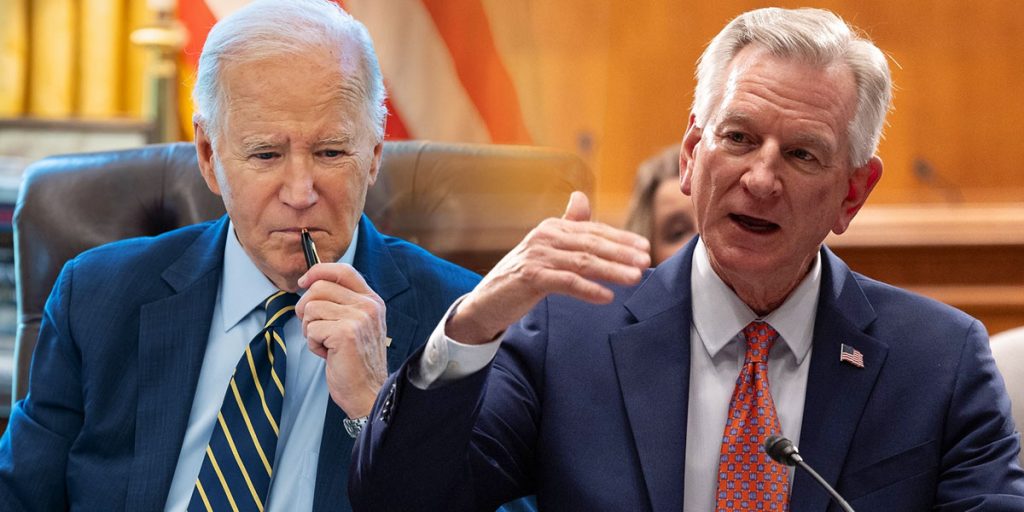Heading into Alabama’s 2024 Regular Legislative Session, Medicaid expansion was expected to be one of the major topics under discussion. However, the session came and went without any action being taken. First implemented by the federal Patient Protection and Affordable Care Act of 2010 (Obamacare), Alabama remains one of ten states that has not elected to expand Medicaid.
To be clear, the Alabama Legislature’s decision to not pursue Medicaid expansion this session was the right choice. Despite claims by expansion proponents that the state is missing out on potentially hundreds of millions of dollars in “free” federal dollars, each one of those dollars comes with matching requirements and strings attached. Dollars alone also do not consider the other societal and economic implications that could come with expansion.
While the legislature declined to make any decisions relating to Medicaid expansion this year, that has not stopped some groups from turning to Governor Kay Ivey to act. It is presumed that the Governor could expand Medicaid through an Executive Order, though an appropriation to pay for expansion costs would be required from the legislature. Some groups have also proposed that the state increase health insurance enrollment through a public-private partnership option, the result of which would be like Medicaid expansion.
To her credit, a spokesperson for Governor Ivey recently said that Ivey’s position remains unchanged and “she remains concerned for how the state would pay for it long-term.”
In a recent letter to the Governor, a group in favor of increasing healthcare enrollment, claimed that doing so would increase the state’s stagnant labor participation rate and lead to increased worker productivity and economic growth. The group also said that it would relieve some of the financial stress faced by rural hospitals.
However, there is no evidence that expansion would do any of these things.
First, there is the impact on the state’s General Fund budget. It is estimated that the costs of expansion would average $225 million annually over the first six years, rising from $208 million in year one to more than $243 million by year six. All this money represents new General Fund spending.
While it is true that the state would get federal funds from a decision to expand, all those funds would be directed to the state’s Medicaid agency, potentially leaving a shortfall for other General Fund agencies. That gap would have to be filled by either cutting non-Medicaid agency budgets or perhaps more likely through direct tax increases or tax increases passed on by healthcare providers. $225 million represents more than 8% of fiscal year 2023 General Fund spending.
That would only be the start. Over the next decade, the Congressional Budget Office projects that annual spending on the federal Medicaid program will increase by nearly 63%. If state spending increases at a similar rate, Medicaid expansion could end up costing Alabama taxpayers close to $350 million per year within a decade. A 2023 report by Paragon Health Institute found that expansion costs have exceeded estimates by an average of 33% nationwide.
The potential impacts to Alabama’s labor participation rate must also be considered. At the end of April, the state’s labor participation rate was 57.5%, a slight improvement over the previous month, but still amongst the worst in the nation.
There is no evidence that Medicaid expansion would encourage more Alabamians to seek active employment. In fact, it would likely do the opposite. Several states, including Alabama, have tried to attach work requirements as a condition to receiving Medicaid benefits but the Biden Administration has struck down all such attempts. Without strong work requirements in place, expansion could serve as another disincentive for Alabamians to seek full-time employment. For those who are currently working primarily to ensure health benefits, expansion could serve as a deterrent from continuing to do so.
A plan to improve workforce development programs and increase Alabama’s labor force participation rate was a key part of the state’s 2024 legislative session. Amongst other initiatives, the “Working for Alabama” package was developed to help cover the rising costs of childcare and housing and incentivize workers to remain in or return to Alabama’s workforce. Medicaid expansion could upend those efforts before they have a chance to prove their mettle.
There’s also little evidence that Medicaid expansion would save hospitals, particularly rural hospitals. A 2023 study by the Foundation for Government Accountability found that from 2014-2022 nearly 50 hospitals closed in Medicaid expansion states, representing a loss of 5,400 beds. Almost five hundred bed losses impacted rural areas. In non-expansion states, only five percent of hospitals that closed reported that it was due to a lack of Medicaid expansion. A better approach to ensuring the financial viability of all of Alabama’s healthcare providers, as well as increasing access to care for citizens, would be to loosen or repeal the state’s onerous certificate of need requirements.
The long-term costs of Medicaid expansion outweigh any perceived short-term benefits to the state. API supports Governor Ivey’s hesitation to tie our state to the federal albatross and would encourage her to continue to reject external pressure to expand Medicaid. Alabama should instead pursue common sense healthcare policy reforms to increase healthcare access and affordability.
Stephanie Holden Smith is the president/CEO of Alabama Policy Institute.













